
Kuakata: The Daughter of the Sea
Kuakata, known as the 'Daughter of the Sea,' is a hidden gem located in the southern part of Bangladesh. This breathtaking beach destination offers a unique experience where visitors can witness both the sunrise and the sunset over the Bay of Bengal, a rare phenomenon that adds to its charm. The 18-kilometer long sandy beach is perfect for a relaxing stroll, sunbathing, or taking a refreshing dip in the sea. The natural beauty of Kuakata is complemented by the lush green forests and the diverse wildlife that inhabit the area. The nearby Jhau forest and the Fatrar Char Island are popular spots for nature lovers and bird watchers. In addition to its natural allure, Kuakata is rich in cultural heritage. The local Rakhine community welcomes visitors with open arms, offering a glimpse into their traditional way of life. You can visit the ancient Buddhist temples and try local delicacies, making your trip not only scenic but also culturally enriching. Kuakata is also a gateway for exploring the nearby Sundarbans, the largest mangrove forest in the world and home to the Bengal tiger. A visit to Kuakata promises a blend of serene beach life, cultural exploration, and adventurous excursions, making it an ideal destination for all types of travelers.
Local tips in Kuakata
- Best time to visit Kuakata is from October to March when the weather is pleasant.
- Don't miss the sunrise and sunset views; plan your day accordingly.
- Try local seafood dishes at the beachside restaurants for an authentic taste.
- Carry cash, as ATMs are limited and credit card facilities might not be available everywhere.
- Hire a local guide to explore the nearby cultural sites and natural attractions.
- Respect the local customs and traditions, especially when visiting the Rakhine community.
Kuakata: The Daughter of the Sea
Kuakata, known as the 'Daughter of the Sea,' is a hidden gem located in the southern part of Bangladesh. This breathtaking beach destination offers a unique experience where visitors can witness both the sunrise and the sunset over the Bay of Bengal, a rare phenomenon that adds to its charm. The 18-kilometer long sandy beach is perfect for a relaxing stroll, sunbathing, or taking a refreshing dip in the sea. The natural beauty of Kuakata is complemented by the lush green forests and the diverse wildlife that inhabit the area. The nearby Jhau forest and the Fatrar Char Island are popular spots for nature lovers and bird watchers. In addition to its natural allure, Kuakata is rich in cultural heritage. The local Rakhine community welcomes visitors with open arms, offering a glimpse into their traditional way of life. You can visit the ancient Buddhist temples and try local delicacies, making your trip not only scenic but also culturally enriching. Kuakata is also a gateway for exploring the nearby Sundarbans, the largest mangrove forest in the world and home to the Bengal tiger. A visit to Kuakata promises a blend of serene beach life, cultural exploration, and adventurous excursions, making it an ideal destination for all types of travelers.
When is the best time to go to Kuakata?
Iconic landmarks you can’t miss
Kuakata Sea Beach
Experience the mesmerizing sunrise and sunset over the Bay of Bengal at Kuakata Sea Beach, a serene coastal paradise with rich cultural heritage and natural beauty.
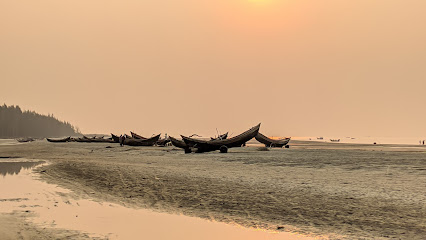
Kuakata Sea Beach Zero Point
Experience the mesmerizing beauty of Kuakata Sea Beach, Bangladesh, where you can witness both sunrise and sunset over the Bay of Bengal, explore rich culture, and relax on pristine sands.
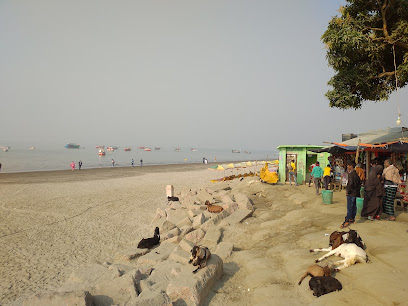
Parjatan Motel Kuakata, Patuakhali
Experience coastal beauty and cultural heritage at Parjatan Motel Kuakata, offering stunning sunrise/sunset views and access to local attractions.
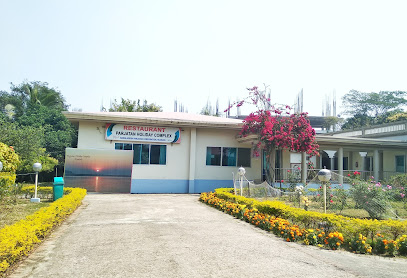
Mishripara Seema Buddha Temple
Discover tranquility at Mishripara Seema Buddha Temple near Kuakata, home to Bangladesh's largest Buddha statue and a vibrant Rakhine culture, offering a serene spiritual escape.
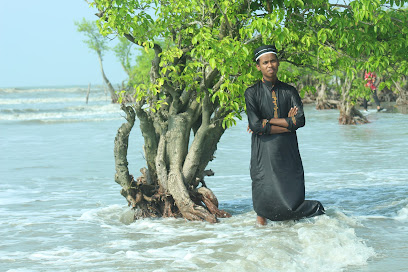
Hotel Khan Palace
Experience comfort and coastal beauty at Hotel Khan Palace in Kuakata, Bangladesh, offering easy access to stunning beaches, cultural sites, and breathtaking sunrise and sunset views.
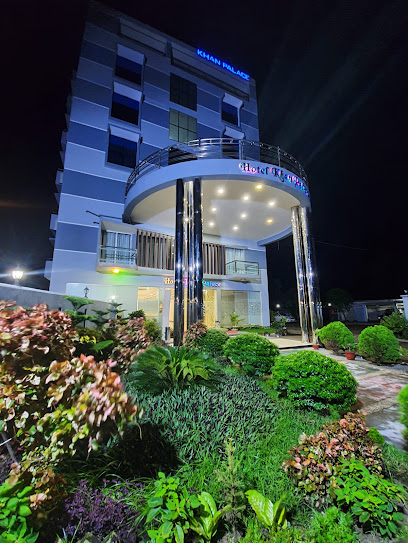
Fatrar Char
Discover Fatrar Char: A serene mangrove forest near Kuakata Beach offering boat trips, nature trails, and diverse Bangladesh wildlife.
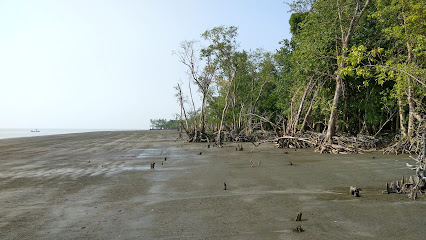
Srimangal Buddhist Vihar Kuakata
Discover tranquility at Kuakata's Srimangal Buddhist Vihar, a serene temple with a rich history and stunning Buddha statue.
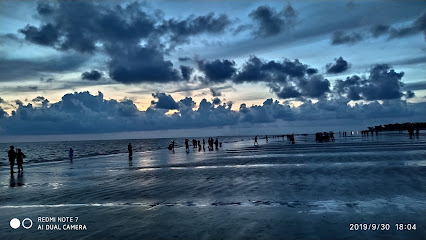
Hotel Sea Queen
Experience comfort and tranquility at Hotel Sea Queen, your beachfront haven in beautiful Kuakata, Bangladesh.

Hotel Neelanjana Ltd.
Experience Kuakata's coastal charm from Hotel Neelanjana, perfectly situated near the Rakhain Mahila Market, offering easy access to the beach and local culture for an authentic Bangladeshi getaway.
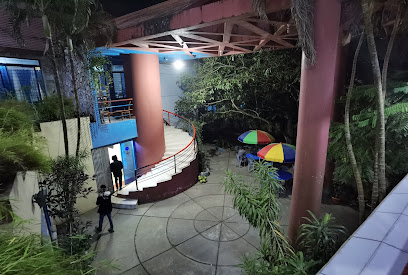
Sagor Konna Resort Ltd.
Experience Kuakata's beauty at Sagor Konna Resort: beachfront serenity, comfortable stays, and stunning Bay of Bengal views.
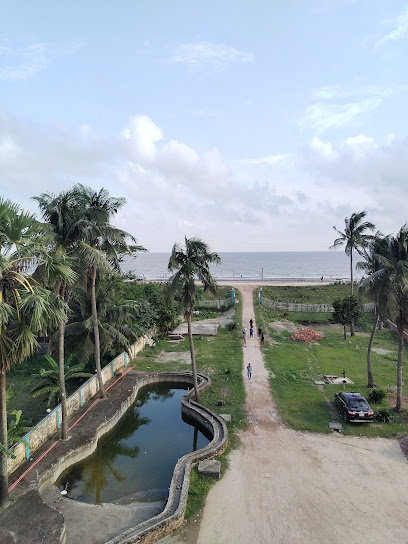
ILISH PARK KUAKATA BANGLADESH
Experience endless fun and cultural charm at Ilish Park, a captivating amusement park in Kuakata, Bangladesh, perfect for family adventures and scenic relaxation.
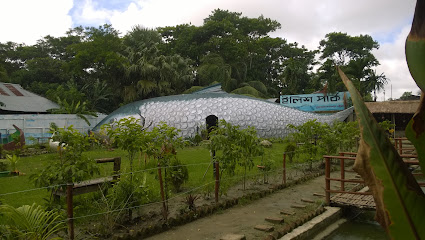
Sunset Point Kuakata
Experience the magic of Kuakata's Sunset Point: where breathtaking sunsets paint the sky, offering a serene escape and unforgettable memories by the Bay of Bengal.
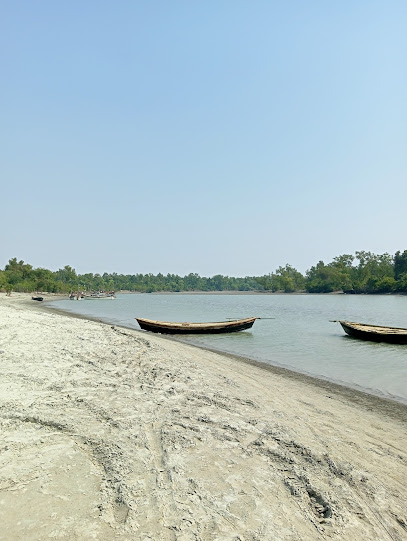
kuakata
Explore Kuakata, the captivating beach destination in Bangladesh known for its stunning sunrises, sunsets, and rich local culture.
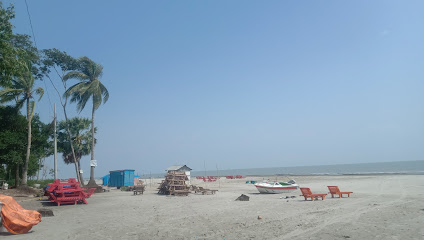
তিন নদীর মোহনা
Discover the serene beauty of তিন নদীর মোহনা in Kuakata, where three rivers meet the sea, offering breathtaking sunsets and a glimpse into rural Bangladeshi life.
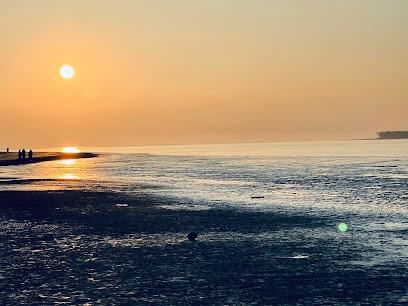
Sagorkonna Fisheries
Experience the tranquil charm of Sagorkonna Fisheries in Kuakata, a serene destination blending nature and local fishing culture.
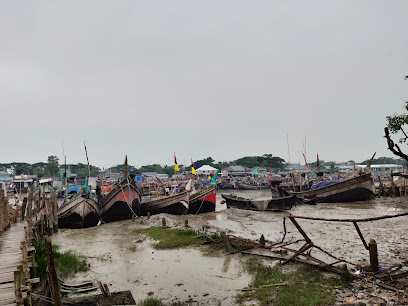
Unmissable attractions to see
Kuakata Sea Beach
Experience breathtaking sunrises and sunsets at Kuakata Sea Beach, a serene coastal paradise in Bangladesh with rich culture and natural beauty.
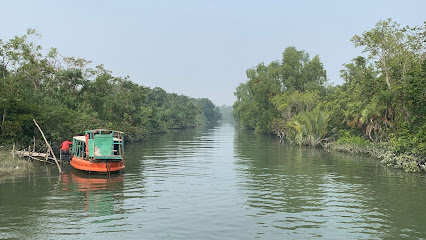
Kuakata Sea Beach Zero Point
Experience the mesmerizing sunrise and sunset at Kuakata Sea Beach, a unique coastal paradise in Bangladesh with rich cultural and natural attractions.
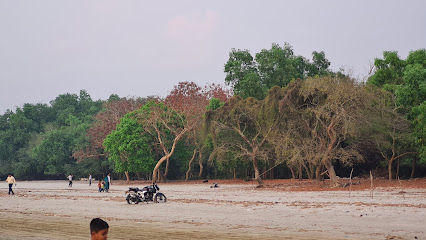
Sikder Resort & Villas, Kuakata
Experience luxury and nature at Sikder Resort & Villas Kuakata, offering stunning views, elegant accommodations, and a perfect coastal escape.
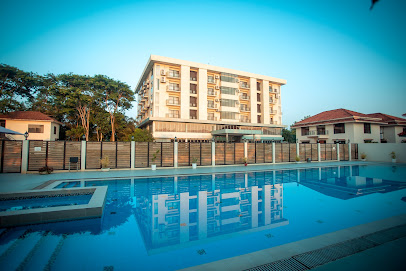
Mishripara Seema Buddha Temple
Discover tranquility at Mishripara Seema Buddha Temple near Kuakata Beach, home to Bangladesh's largest Buddha statue and rich Rakhine culture.
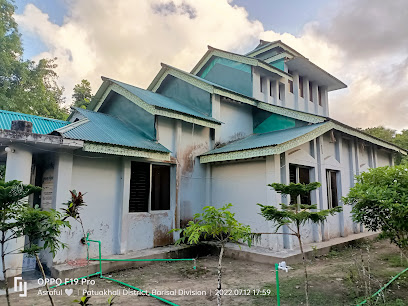
Kuakata Zero Point
Experience the magic of Kuakata Zero Point: where breathtaking sunrises and sunsets paint the sky over the Bay of Bengal, a true Daughter of the Sea.
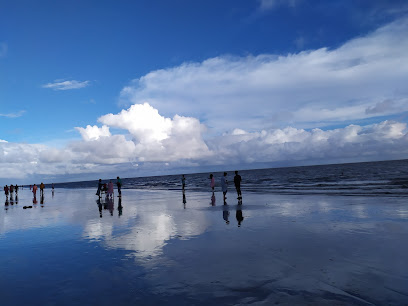
Fatrar Char
Discover Fatrar Char: A serene island escape near Kuakata, offering pristine beaches, diverse wildlife, and tranquil mangrove forests.
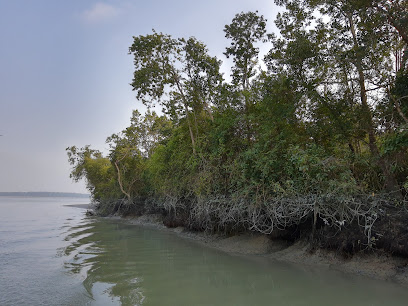
Srimangal Buddhist Vihar Kuakata
Discover tranquility at Srimangal Buddhist Vihar in Kuakata, a serene sanctuary of culture, history, and spiritual significance by the Bay of Bengal.
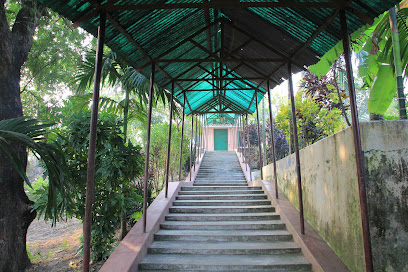
ILISH PARK KUAKATA BANGLADESH
Experience fun and relaxation at Ilish Park Kuakata, a perfect destination for families and tourists seeking a memorable coastal getaway in Bangladesh.
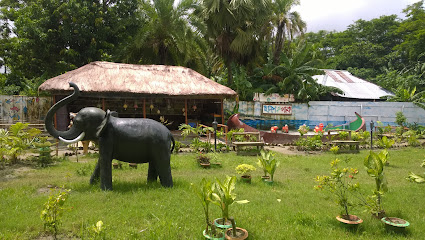
Sunset Point Kuakata
Experience breathtaking sunsets at Kuakata's Sunset Point, a serene coastal escape on the Bay of Bengal. A must-visit for nature lovers!
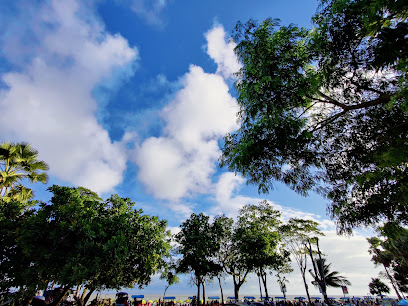
লেবুর বন কুয়াকাটা
Discover Lebur Bon in Kuakata: A serene coastal forest with lush greenery, diverse wildlife, and breathtaking sunsets.
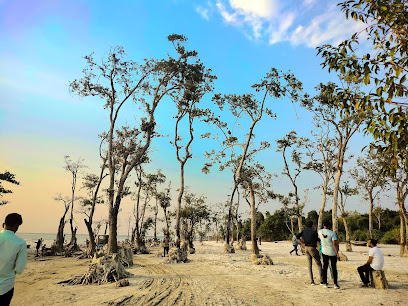
Shonakata Eco Park
Discover Shonakata Eco Park: A tranquil escape where lush forests meet the serene Bay of Bengal, offering stunning natural beauty and peaceful adventure.
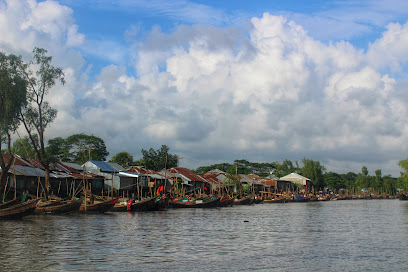
কুয়াকাটা সমুদ্র সৈকতে সূর্যোদয় উপভোগের স্থান
Experience the rare beauty of Kuakata Sea Beach, where you can witness both sunrise and sunset over the Bay of Bengal. A serene escape awaits!
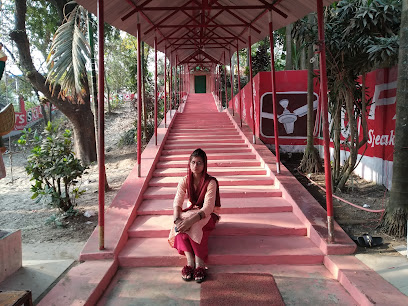
সাগরকন্যা কুয়াকাটা
Experience the serene beauty of Kuakata Sea Beach, Bangladesh, where you can witness both sunrise and sunset over the Bay of Bengal.
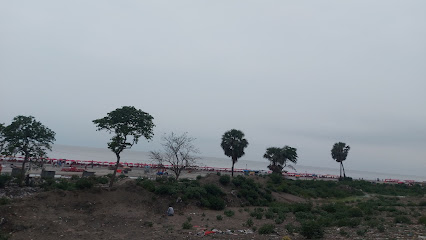
লেবু বন কুয়াকাটা সমুদ্র সৈকত
Discover Lebu Bon in Kuakata: A serene coastal forest offering tranquil nature escapes, stunning sunsets, and a glimpse into local rural life.
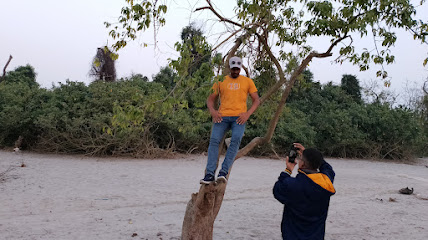
Kuakata Blue Sea Beach
Experience breathtaking sunrises and sunsets at Kuakata Blue Sea Beach, a unique coastal paradise in Bangladesh. Relax, explore, and immerse yourself in nature.
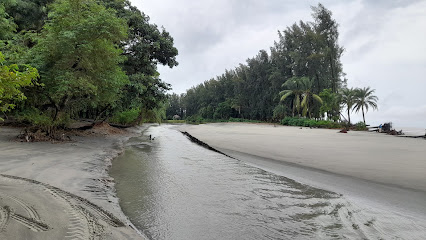
Essential places to dine
Hotel Kuakata Inn Int'l Ltd
Experience breathtaking views and exquisite dining at Hotel Kuakata Inn Int'l Ltd, your perfect retreat in scenic Kuakata.
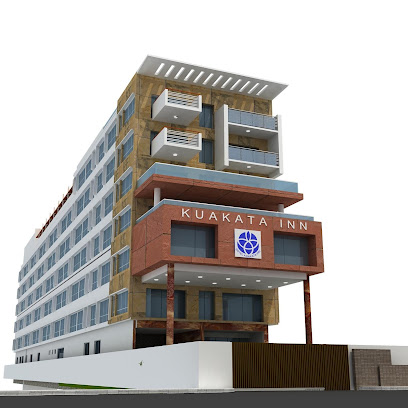
kuakata
Experience breathtaking sunrises and sunsets at Kuakata Beach – a serene coastal gem in Bangladesh offering cultural richness and delectable seafood.
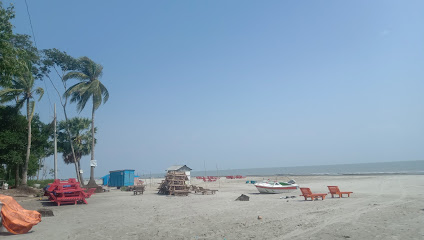
PAYRA RESTAURANT & PARTY CENTER
Experience the rich flavors of Bangladeshi cuisine at Payra Restaurant & Party Center in Kuakata – where every meal is a celebration.
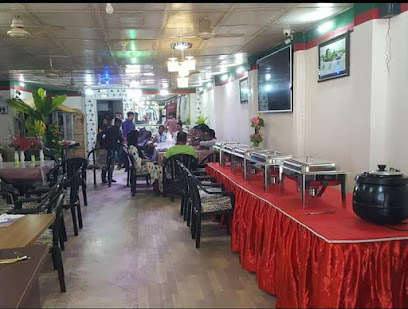
Arabella Restaurant Kuakata
Experience the flavors of Bangladesh at Arabella Restaurant Kuakata—where authentic cuisine meets warm hospitality.
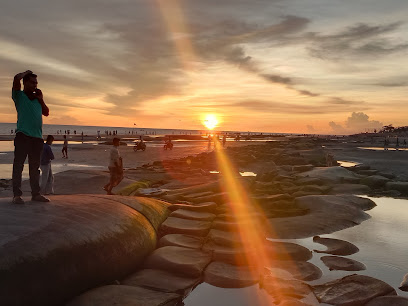
Barisal Gate Chinese & bangla Restaurant
Savor the best of Bangladeshi and Chinese cuisines at Barisal Gate Restaurant in Mahipur—a culinary delight for every traveler.
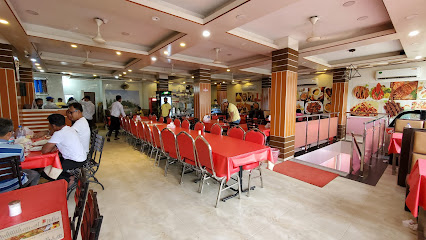
Graver Inn Kabab House & Conference Hall
Experience authentic Bangladeshi flavors at Graver Inn Kabab House & Conference Hall in Kuakata - where culinary traditions come alive.
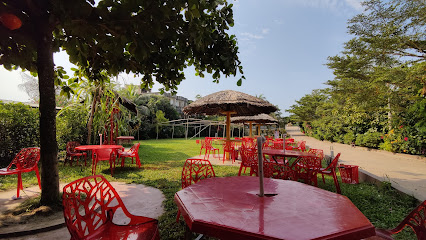
Poushi Restaurant
Experience authentic Bangladeshi flavors at Poushi Restaurant in Kuakata - where every dish tells a story.
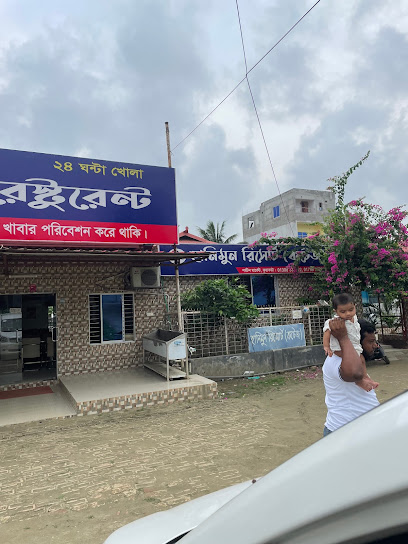
Hotel Khabar Ghor
Experience authentic Bangladeshi flavors at Hotel Khabar Ghor in Kuakata - where every meal tells a story.
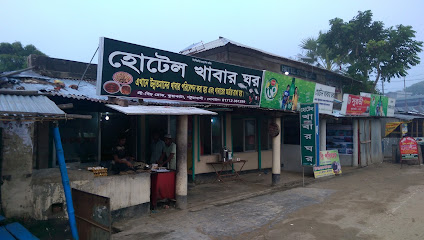
Marine Restaurant And Kabab
Discover exquisite seafood delights at Marine Restaurant and Kabab in Kuakata - where taste meets tradition by the sea.
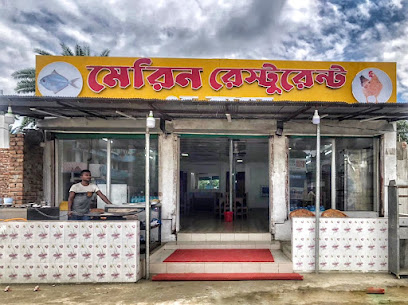
Sea Girl Restaurant
Experience authentic Bangladeshi seafood at Sea Girl Restaurant in Kuakata - where flavor meets tradition in a stunning coastal setting.
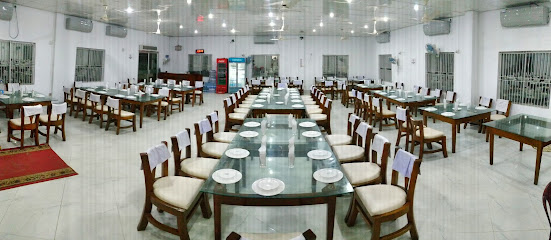
Fish Fry Market
Savor fresh seafood delights at Fish Fry Market in Kuakata - a culinary paradise on Bangladesh's stunning coast.
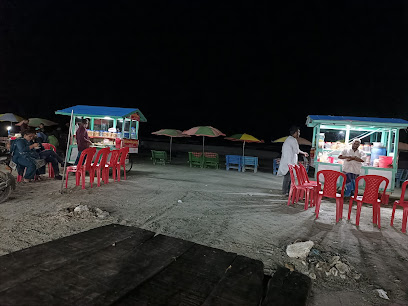
Kuakata Food Court
Discover delicious barbecue delights at Kuakata Food Court near stunning Kuakata Beach – a perfect blend of flavor and scenic beauty.
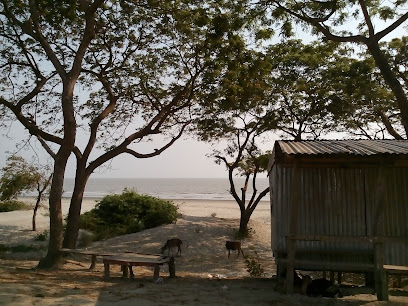
Parjatan Motel Restaurant, Kuakata, Patuakhali
Discover authentic Bangladeshi flavors at Parjatan Motel Restaurant in Kuakata—where every meal is a seaside delight.
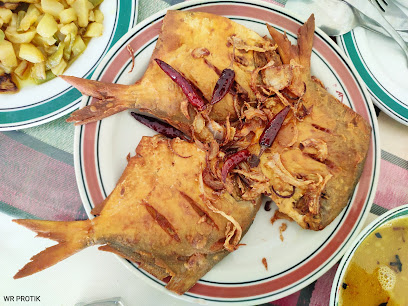
Banorupa Garden Restaurant
Discover Banorupa Garden Restaurant in Kuakata - A hidden gem serving authentic Asian cuisine in a serene garden setting.
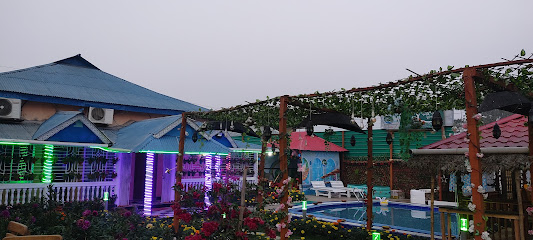
কুয়াকাটার জামাল ভাইয়ের ফ্রাই ঘর
Experience authentic barbecue flavors at Jamal Bhai's Fry House in Kuakata – where every bite tells a story of local culinary tradition.
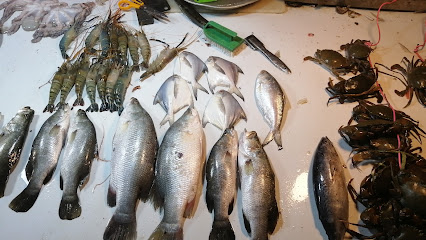
Markets, malls and hidden boutiques
Misripara Tourist Shopping Village
Discover the charm of Misripara Tourist Shopping Village in Kuakata, where local craftsmanship meets vibrant culture, perfect for unique souvenirs.
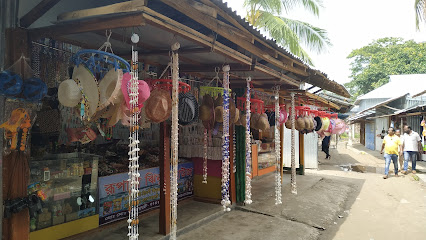
SagorKonna Shop
Explore unique local products and traditional crafts at SagorKonna Shop, a must-visit destination in Kuakata for all travelers.
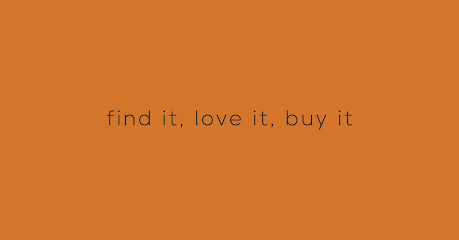
শুঁটকি বাজার ডট কম কুয়াকাটা
Discover the essence of Kuakata at Shutki Bazaar, where the rich tradition of dried fish and local culture come alive in a vibrant market atmosphere.
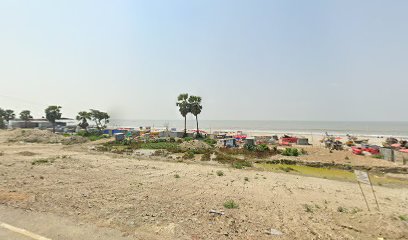
Sikder Veraitis Store
Explore Sikder Veraitis Store in Khapra Bhanga for unique handicrafts, local snacks, and a true taste of Bangladeshi culture.
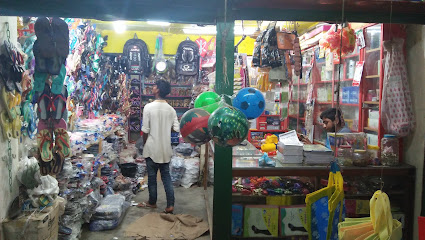
সাগর কন্যা আচার বিতান
Discover the authentic taste of Bangladesh at Sagar Kanya Achar Bitan, a treasure trove of traditional pickles and local delicacies in Kuakata.
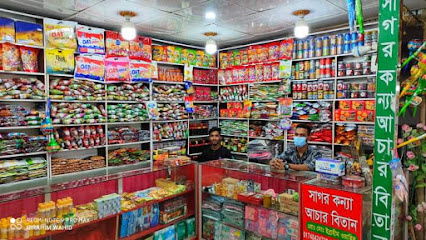
সরদার ষ্টোর, বটতলা, ডংকুপাড়া।
Experience the local charm of Kuakata at Sardar Store – your go-to destination for essentials and unique souvenirs.
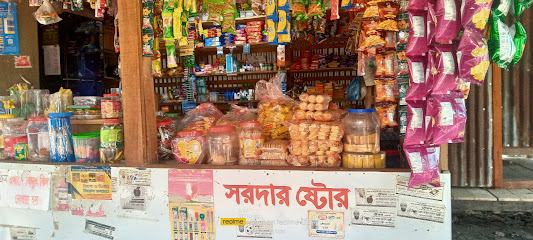
কুয়াকাটা ষ্টোর্স।
Explore Kuakata Stores for unique handicrafts and souvenirs that reflect the vibrant culture of this charming coastal town.
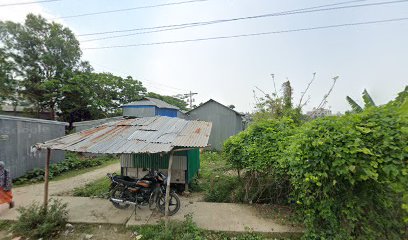
Missripara Rakhain Market, Kuakata, Bangladesh
Discover the essence of Kuakata at Missripara Rakhain Market, a vibrant gift shop showcasing local craftsmanship and culture.
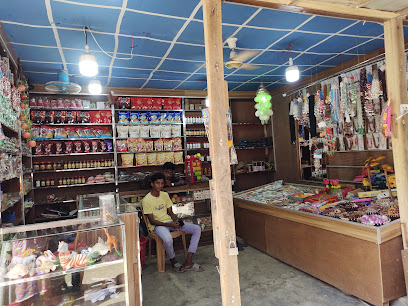
মোল্লা স্টোর্স
Discover the charm of local shopping at Molla Store, your grocery haven in Kuakata with fresh produce and authentic Bengali snacks.
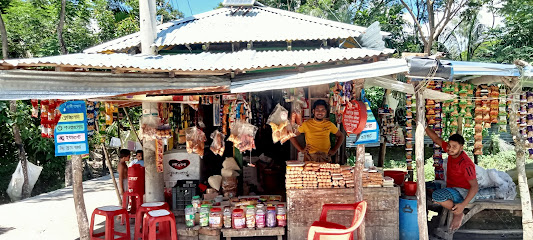
ইসমাইল স্টোর, কুয়াকাটা
Discover the charming Ismail Store in Kuakata, where local culture meets unique shopping experiences in a vibrant coastal town.
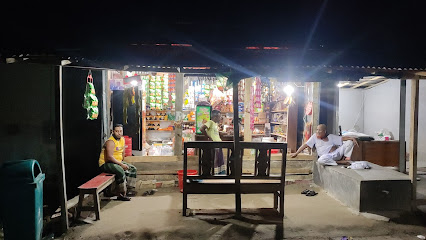
Hunt Kuakata Shop
Experience the rich flavors of artisanal chocolates at Hunt Kuakata Shop, a delightful destination for chocolate enthusiasts in Kuakata.
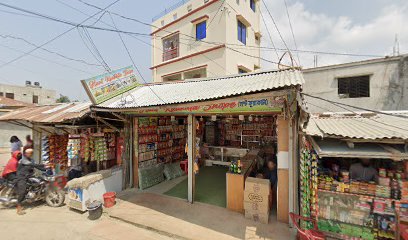
Kuakata Fashion
Discover the vibrant local fashion and unique handicrafts at Kuakata Fashion, your go-to shopping destination in Kuakata.
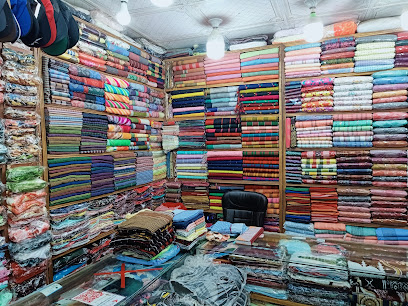
শুঁটকি বাজার- কুয়াকাটা
Experience the lively Shrimp Market in Kuakata, a cultural hub showcasing the best of local seafood and vibrant coastal life.
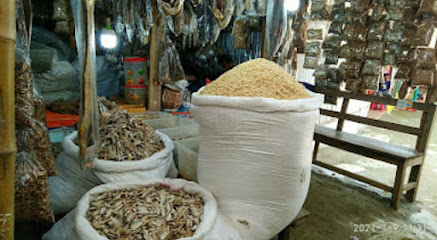
মেসার্স হাসান এন্টারপ্রাইজ এন্ড কফি হাউজ
Experience the serene charm of Hasan Enterprise and Coffee House in Kuakata, where local flavors meet warm hospitality for a perfect break.
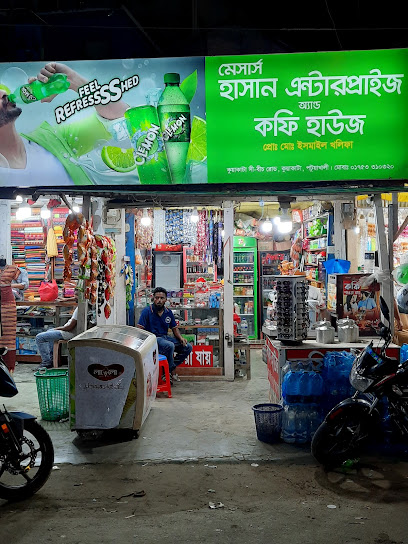
সানজু মনি ষ্টোর কাঁচাবাজার
Discover local flavors and culture at Sanju Moni Store, Kuakata's bustling grocery store, perfect for tourists seeking authentic Bangladeshi goods.
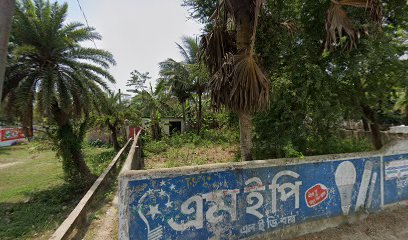
Essential bars & hidden hideouts
kuakata
Explore the captivating shores of Kuakata, a picturesque beach destination in Bangladesh known for its stunning sunsets and rich cultural heritage.
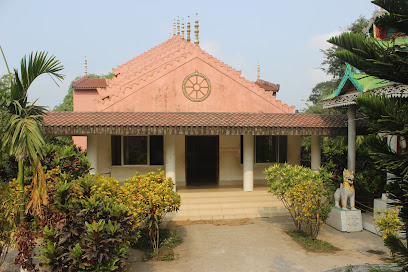
PAYRA RESTAURANT & PARTY CENTER
Experience the authentic flavors of Bangladeshi cuisine at Payra Restaurant & Party Center in Kuakata, a perfect spot for food lovers.
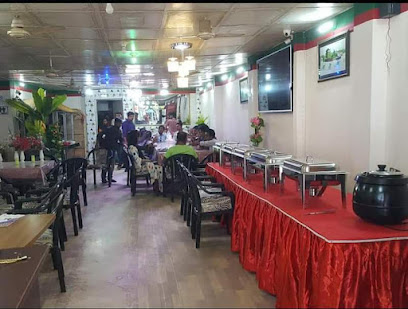
Arabella Restaurant Kuakata
Experience authentic coastal dining at Arabella Restaurant Kuakata, where fresh seafood meets warm Bangladeshi hospitality in a picturesque setting.
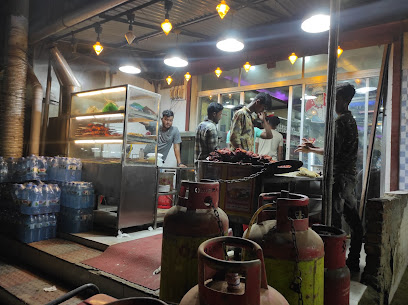
Barisal Gate Chinese & bangla Restaurant
Discover the perfect blend of Chinese and Bangladeshi cuisine at Barisal Gate, where every meal is a celebration of flavor.
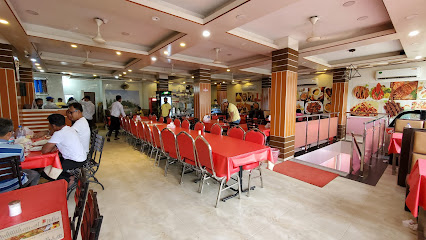
Graver Inn Kabab House & Conference Hall
Discover authentic Bangladeshi cuisine at Graver Inn Kabab House, where every meal is a flavorful journey in the heart of Kuakata.
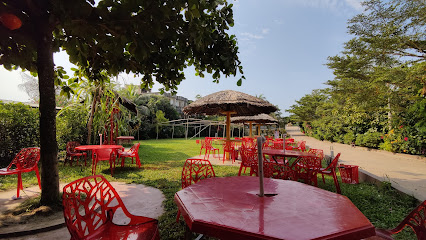
Poushi Restaurant
Discover the authentic taste of Bangladeshi cuisine at Poushi Restaurant in Kuakata, where every meal is a delightful experience.
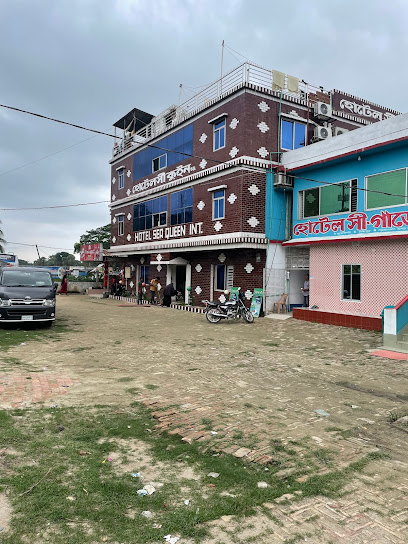
Kuakata BBQ & Fish fry
Discover the authentic taste of Kuakata at Kuakata BBQ & Fish Fry, where fresh seafood meets local flavor in a vibrant market setting.
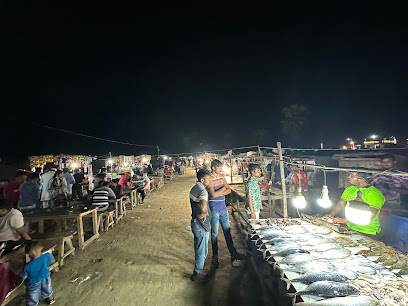
Kuakata Food Court
Experience the vibrant flavors of Kuakata Food Court, where delicious barbecue meets stunning beach views in Bangladesh.
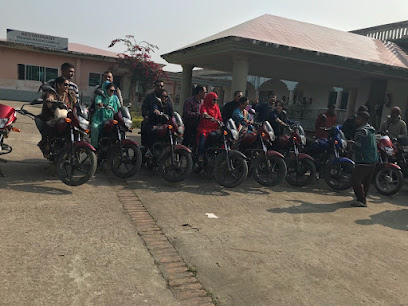
Parjatan Motel Restaurant, Kuakata, Patuakhali
Experience the rich flavors of Bangladeshi cuisine at Parjatan Motel Restaurant, overlooking the beautiful Kuakata beach.
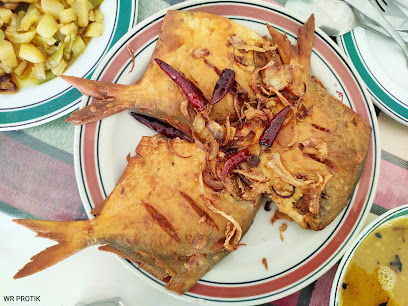
Kuakata BAR
Discover Kuakata BAR - A vibrant seaside bar offering refreshing drinks, stunning views, and a lively atmosphere in beautiful Kuakata.
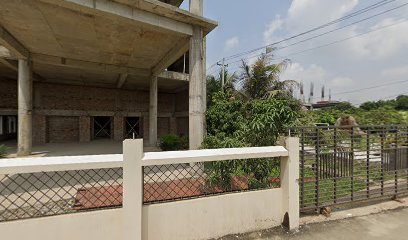
কুয়াকাটার জামাল ভাইয়ের ফ্রাই ঘর
Experience the best barbecue in Kuakata at Jamal Bhai's Fry House, where delicious flavors and a friendly atmosphere await.
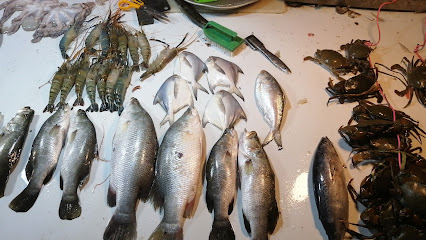
Khabar Bari Restora Kuakata
Explore the flavors of Kuakata at Khabar Bari Restora, a delightful restaurant offering local and international cuisine in a vibrant setting.
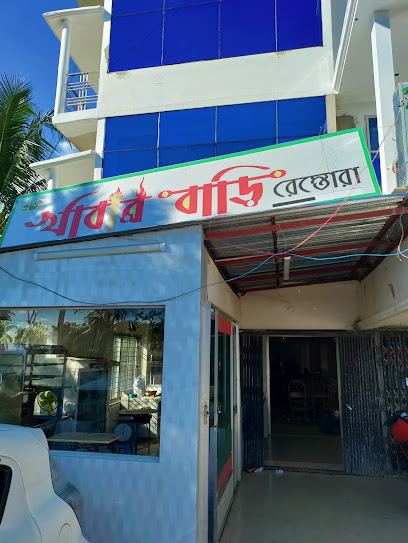
Fish Bar-B-Q Market west side kuakata
Discover the vibrant flavors of Kuakata at Fish Bar-B-Q Market, where fresh seafood and barbecue delights await in a lively coastal atmosphere.
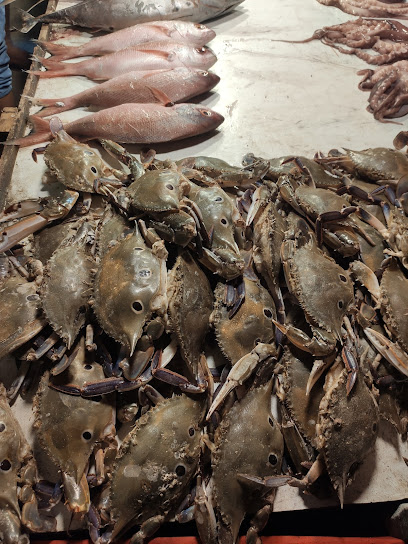
Hotel mollika abashik& resturent
Discover the essence of Bangladeshi cuisine at Hotel Mollika Abashik & Restaurant in Kuakata, where every meal is a celebration of flavors.
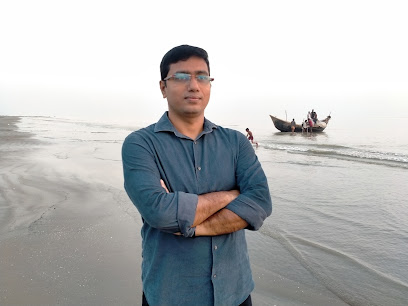
Local Phrases about Kuakata
-
- Helloহ্যালো
[helo] - Goodbyeবিদায়
[bidae] - Yesহ্যাঁ
[hya] - Noনা
[na] - Please/You're welcomeঅনুগ্রহ করে
[onugroh kore] - Thank youধন্যবাদ
[dhonyobad] - Excuse me/Sorryদুঃখিত
[dukhit] - How are you?তুমি কেমন আছো?
[tumi kemon achho?] - Fine. And you?ভালো। আর তুমি?
[bhalo. ar tumi?] - Do you speak English?তুমি ইংরেজি কথা বলতে পারো?
[tumi ingreji kotha bolte paro?] - I don't understandআমি বুঝতে পারছি না
[ami bujhte parchi na]
- Helloহ্যালো
-
- I'd like to see the menu, pleaseদয়া করে মেনু দেখাতে চাই
[doya kore menu dekhate chai] - I don't eat meatআমি মাংস খাই না
[ami mangsh khai na] - Cheers!শুভেচ্ছা!
[shubhechcha!] - I would like to pay, pleaseদয়া করে আমি দিতে চাই
[doya kore ami dite chai]
- I'd like to see the menu, pleaseদয়া করে মেনু দেখাতে চাই
-
- Help!বাঁচাও!
[bachao!] - Go away!চলে যাও!
[chole jao!] - Call the Police!পুলিশকে কল করুন!
[polishke kol korun!] - Call a doctor!ডাক্তারকে কল করুন!
[daktarke kol korun!] - I'm lostআমি হারানো গেছি
[ami harano geshi] - I'm illআমি অসুস্থ
[ami osustho]
- Help!বাঁচাও!
-
- I'd like to buy...আমি ... কিনতে চাই
[ami ... kinte chai] - I'm just lookingআমি শুধু দেখতে আসছি
[ami shudhu dekhte ashchi] - How much is it?এটা কত?
[eta koto?] - That's too expensiveএটা খুব বেশি দাম
[eta khub beshi dam] - Can you lower the price?দাম কমাতে পারবেন?
[dam kamate parben?]
- I'd like to buy...আমি ... কিনতে চাই
-
- What time is it?এখানে কতটা বাজছে?
[ekhane kotta bajche?] - It's one o'clockএকটা বাজছে
[ekta bajche] - Half past (10)দশের পাঁচের অর্ধেক
[dasher pancher ordhek] - Morningসকাল
[shokal] - Afternoonদুপুর
[dupur] - Eveningসন্ধ্যা
[shondhya] - Yesterdayগতকাল
[gatkal] - Todayআজ
[aj] - Tomorrowআগামীকাল
[agamikal] - 1এক
[ek] - 2দুই
[dui] - 3তিন
[tin] - 4চার
[char] - 5পাঁচ
[pach] - 6ছয়
[chhoy] - 7সাত
[shat] - 8আট
[at] - 9নয়
[noy] - 10দশ
[dosh]
- What time is it?এখানে কতটা বাজছে?
-
- Where's a/the...?এখানে ... কোথায়?
[ekhane ... kothay?] - What's the address?ঠিকানা কি?
[thikana ki?] - Can you show me (on the map)?আপনি আমাকে দেখাতে পারবেন?
[apni amake dekhate parben?] - When's the next (bus)?পরের গাড়ি কখন?
[porer gari kokhon?] - A ticket (to ....)একটা টিকেট (থেকে ....)
[ekta ticket (theke ....)]
- Where's a/the...?এখানে ... কোথায়?
History of Kuakata
-
Kuakata, a scenic beach town located in Patuakhali District, Bangladesh, has a rich history dating back to the early 19th century. The name 'Kuakata' is derived from the Bengali words 'kua' (well) and 'kata' (dug). The area was settled by the Rakhine people, who were forced to flee their homeland in Myanmar due to political unrest. The Rakhine dug wells in the area to ensure a fresh water supply, and these wells became a defining feature of Kuakata.
-
The Rakhine community played a pivotal role in shaping the cultural and social landscape of Kuakata. Fleeing from the Burmese invasion in the early 19th century, they brought with them their unique traditions, cuisine, and crafts. The Rakhine people established settlements and contributed to the local economy through fishing, agriculture, and trade. Their influence is still evident in the cultural fabric of Kuakata today.
-
During the British colonial period, Kuakata was relatively isolated but gradually gained attention as a potential trade and travel route due to its strategic coastal location. The British administration made several attempts to develop infrastructure in the region, but progress was slow. Despite this, Kuakata remained a significant spot for local fishermen and traders who utilized its natural resources.
-
Kuakata, like many other parts of Bangladesh, experienced the turbulence of the Liberation War in 1971. The war for independence from Pakistan had a profound impact on the local population. Many local residents joined the Mukti Bahini (Liberation Army) to fight against oppression. The beaches and forests of Kuakata served as hideouts and strategic points for the freedom fighters. The war left an indelible mark on the collective memory of the region.
-
In recent decades, Kuakata has transformed into a popular tourist destination, often referred to as the 'Daughter of the Sea.' The local government and private enterprises have invested in developing tourist infrastructure, including hotels, restaurants, and transportation. Festivals such as the Rakhine Water Festival and Bengali New Year are celebrated with much enthusiasm, attracting visitors from across the country. The pristine beaches, panoramic views of the Bay of Bengal, and rich cultural heritage make Kuakata a unique destination for travelers.
-
Kuakata is renowned for its cultural diversity and festivals. The Rakhine community continues to celebrate traditional festivals like the Maghi Purnima and Water Festival, which draw visitors eager to experience the vibrant culture. The local Bangladeshi population also celebrates national events with fervor, including Independence Day and Bengali New Year. This blend of cultures creates a rich tapestry of traditions and communal harmony.
-
Kuakata is not only historically and culturally significant but also boasts natural wonders such as the Kuakata Beach, Jhau Forest, and Gangamati Reserved Forest. These areas are rich in biodiversity and are home to various species of flora and fauna. Conservation efforts are underway to protect these natural habitats from the adverse effects of tourism and climate change. Local organizations and the government are working together to promote eco-friendly tourism and sustainable development in the region.
Kuakata Essentials
-
Kuakata is located in the Patuakhali District of Bangladesh. The nearest major city is Barisal, which is around 120 kilometers away. From Dhaka, you can take a direct bus to Kuakata, which typically takes around 10-12 hours. Alternatively, you can take a flight to Barisal and then a bus or taxi to Kuakata. The journey from Barisal to Kuakata takes about 3-4 hours by road. There are also launch services available from Dhaka to Patuakhali, followed by a bus or taxi ride to Kuakata.
-
Kuakata is a small beach town and many of its attractions are within walking distance. For longer trips within the area, local rickshaws and auto-rickshaws are readily available and relatively inexpensive. Motorbikes can also be rented for a day for those who prefer to explore at their own pace. Public buses connect Kuakata with nearby towns and villages. Taxis are less common but can be hired for specific trips.
-
The official currency in Bangladesh is the Bangladeshi Taka (BDT). Credit cards are accepted in some hotels, restaurants, and shops, but it is advisable to carry cash, especially in smaller establishments and rural areas. ATMs are available in Kuakata, but it is wise to withdraw sufficient cash in Barisal or Dhaka before traveling to ensure you have enough funds.
-
Kuakata is generally a safe destination for tourists. However, it is advisable to take standard precautions. Avoid walking alone at night in unfamiliar areas and keep an eye on your belongings in crowded places. While there are no specific high-crime areas targeting tourists, it is always best to stay vigilant and aware of your surroundings. Petty theft can occur, so keep valuables secure.
-
In case of emergency, dial 999 for immediate assistance. The local police station and medical facilities are available in Kuakata. It is recommended to have travel insurance that covers medical emergencies. For minor health issues, there are pharmacies in the town where you can purchase over-the-counter medications. The nearest major hospital is in Barisal.
-
Fashion: Do dress modestly, especially when visiting religious sites or local villages. Avoid wearing revealing clothing. Religion: Do respect local customs and traditions. Always cover your head when entering mosques and other religious places. Public Transport: Do be respectful and give up your seat to elderly passengers. Don’t eat or drink on public transport. Greetings: Do greet people with a smile and a 'Salam' (peace). A handshake is common, but be mindful of gender norms. Eating & Drinking: Do try local delicacies and accept food offerings graciously. Don’t refuse hospitality, as it is considered impolite.
-
To experience Kuakata like a local, visit the local markets where you can buy fresh seafood and traditional Bangladeshi goods. Engage with locals, as they are often friendly and willing to share stories about the town's history and culture. Don't miss the sunrise and sunset views at the beach, as Kuakata is one of the few places in the world where both can be seen from the same spot. For a unique experience, take a boat ride to the nearby Fatrar Char island.
Trending Landmarks in Kuakata
-
Kuakata Sea Beach
-
Kuakata Sea Beach Zero Point
-
Parjatan Motel Kuakata, Patuakhali
-
Mishripara Seema Buddha Temple
-
Hotel Khan Palace
-
Fatrar Char
-
Srimangal Buddhist Vihar Kuakata
-
Hotel Sea Queen
-
Hotel Neelanjana Ltd.
-
Sagor Konna Resort Ltd.
-
ILISH PARK KUAKATA BANGLADESH
-
Sunset Point Kuakata
-
kuakata
-
তিন নদীর মোহনা
-
Sagorkonna Fisheries
Nearby Cities to Kuakata
-
Things To Do in Khulna
-
Things To Do in Jessore
-
Things To Do in Chittagong
-
Things To Do in Cox's Bazar
-
Things To Do in Kolkata
-
Things To Do in Comilla
-
Things To Do in Dhaka
-
Things To Do in Agartala
-
Things To Do in Rajshahi
-
Things To Do in Sittwe
-
Things To Do in Aizawl
-
Things To Do in Mrauk U
-
Things To Do in Sylhet
-
Things To Do in Rangpur
-
Things To Do in Shillong








